Become a beekeeper
Beekeeping is a calming and close-to-nature hobby that finds more and more fans. We would like to share some experiences from our own beehives with you.
Considerations before starting an apiculture
When you become a beekeeper, you are responsible for about 50,000 living beings – and that is just for one colony! Before the start, you should therefore ask yourself some questions:
- What is your goal: Is harvesting honey your first concern or do you want to protect honeybees?
- How do you want to operate: Can you take care of the bees yourself or do you need to outsource some activities?
- Do you have a suitable location in mind or do you need to find it first?
- Do you plan to have your apiculture certified in the future?
In the following, we will shed some light on these topics.
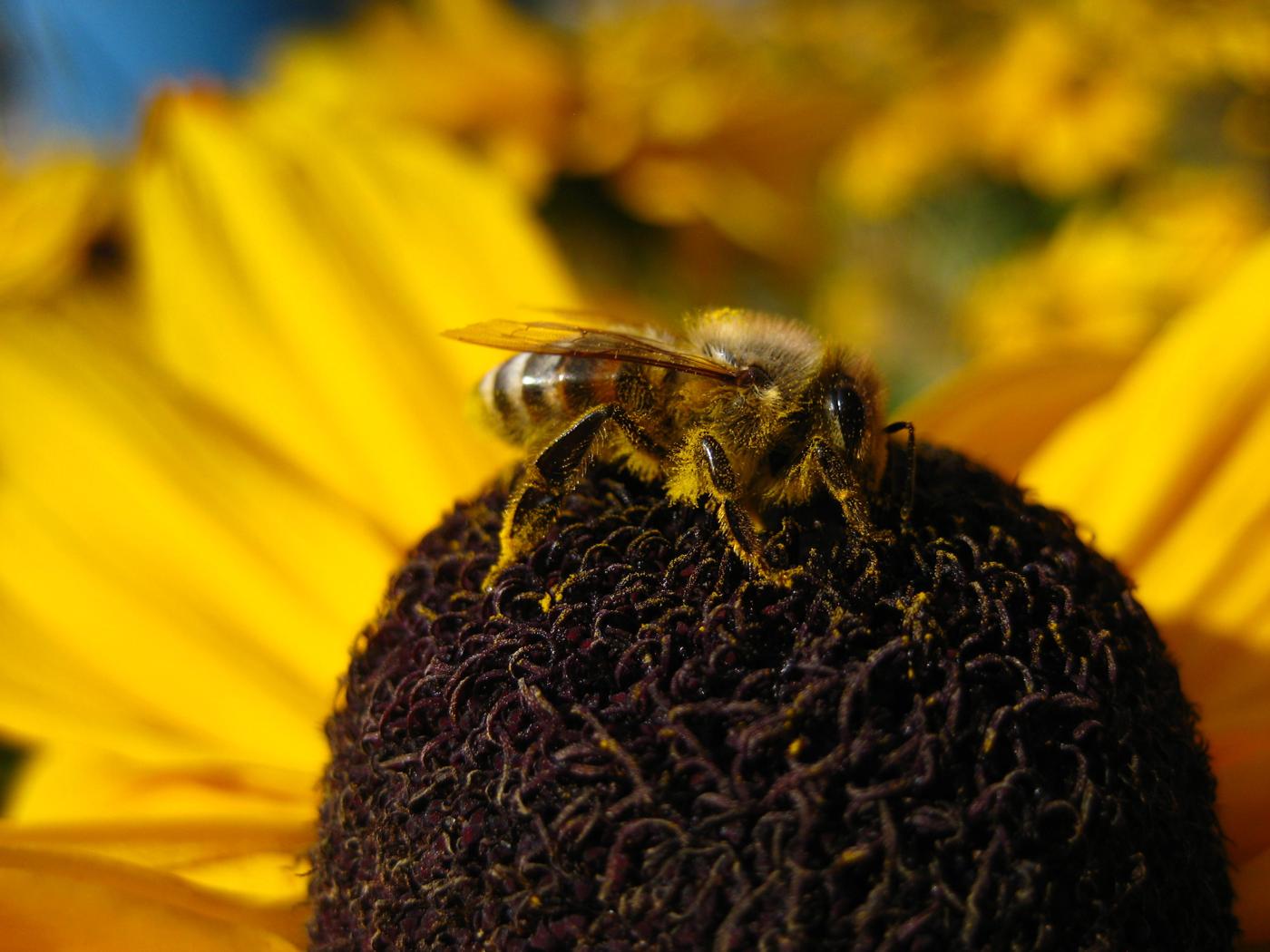
Your motivation and goals
Think about why you want to start an apiculture in your private home or in your organization. Your profit orientation has a direct influence on the number of bee colonies you need and their cultivation. If you plan on producing large amounts of honey you should also think about which sales channels you need to use. However, if your goals are – just like ours – to get to know honeybees and their way of life, to understand natural processes and apiculture and to improve the local pollination of plants, the honey is only a sweet reward for your work as a beekeeper. In that case, the welfare of the bees must be paramount at all times and guide you in upcoming decisions.
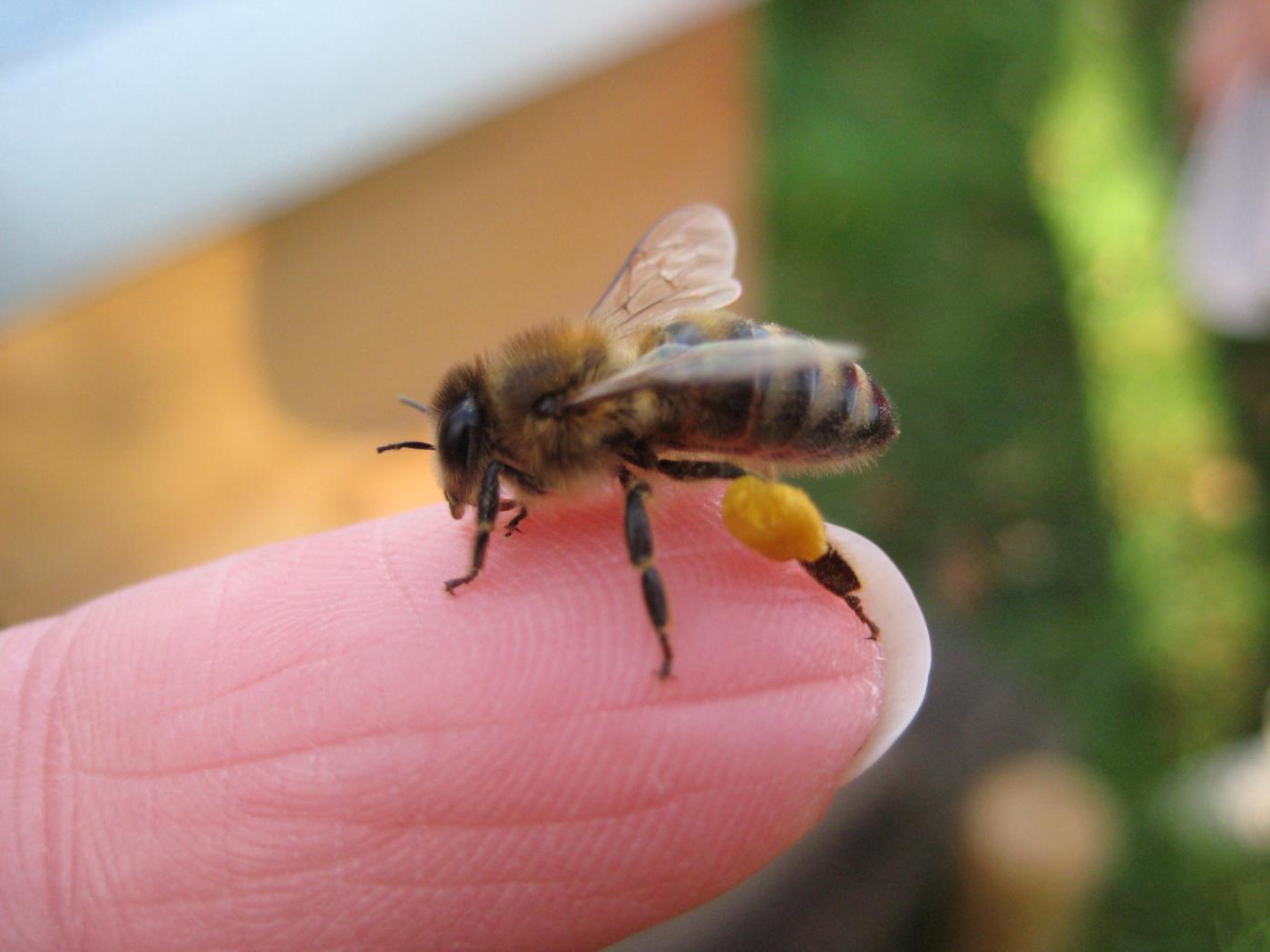
This is how bee lovers keep bees
As a friend of the bees you put yourself in the service of the bees and not the other way around. The goal is to meet their natural needs as well as possible and to promote their long-term well-being. Among beekeepers, several philosophies exist that try to achieve that goal in their own ways, for example close-to-nature apiculture. Flowers4Bees commits to these philosophies and minimizes interferences with the bees’ natural way of life as much as possible. We reject manipulations of the queen bee (e.g. cutting the wings), we solely use organic acids as treatments against the Varroa mite and we refrain from all other pharmaceutical treatments. We only use natural materials as beehives and have introduced our own wax circle on the basis of pesticide-free wax. All bee colonies are given the opportunity to freely build natural honeycombs. We have chosen a nice location with lots of food sources and we let them keep parts of the honey for their own nutrition in winter. The returns from selling the honey are reinvested into achieving the goals of our association – that way, the honeybees do not only work for us but also for their wild cousins.
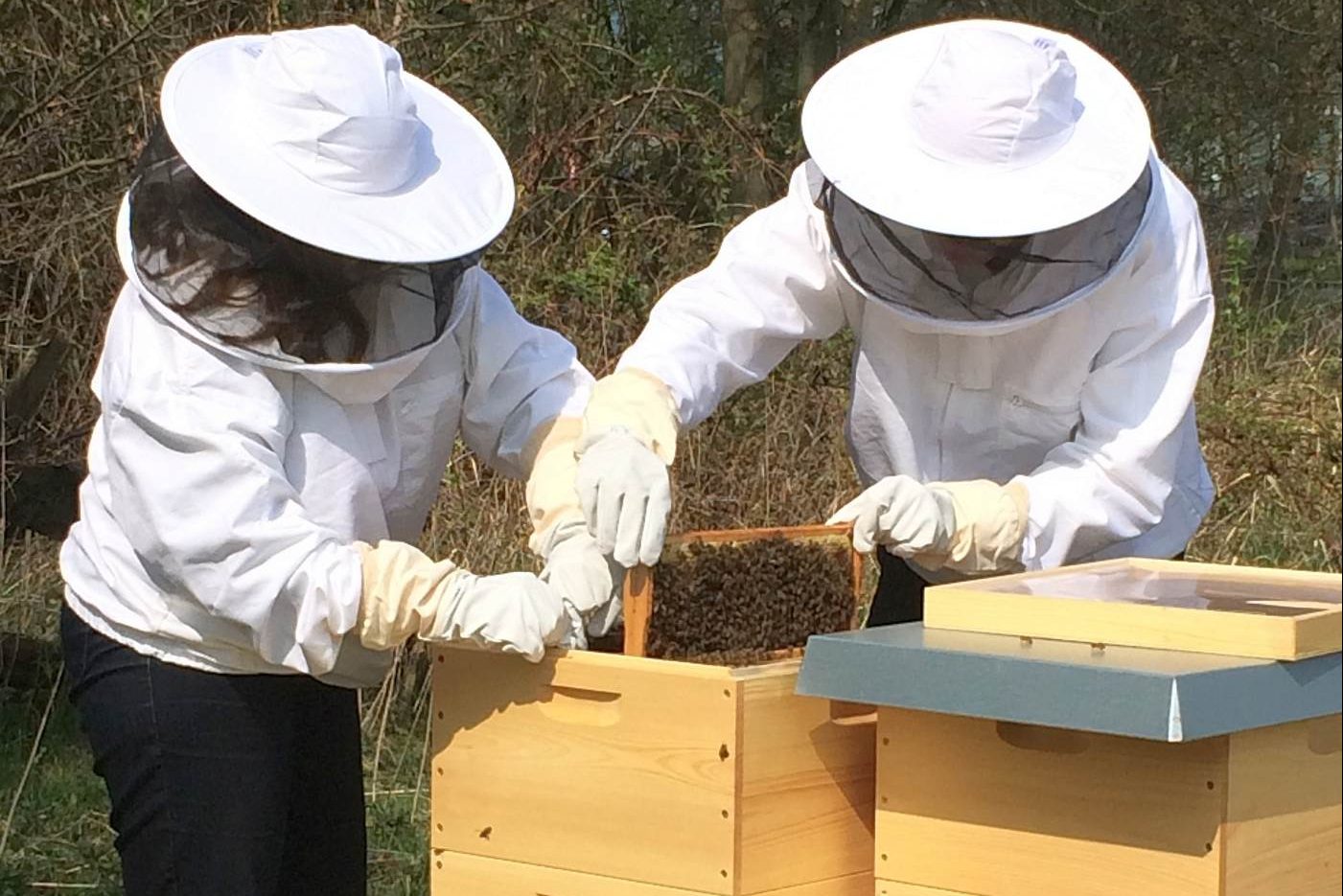
How to organize yourself
Work in apiculture largely depends on the season and time-intensity varies. Of course, beginners need more time for some operations and decisions than experienced beekeepers. According to our own experience, it is best to work in teams of two in the beginning. That way, operations can be thought through together and both can learn from each other. In order to see how differently bees behave, it makes sense to start with at least two bee colonies. In spring and summer, when the bees are most active, you should expect to work about one hour per week on two bee colonies. Of course, this also holds true for the holiday season – so always have a stand-in at hand that knows what to do. Autumn and winter might be less hectic but there is still plenty do to, e.g. bottling honey, health treatments or material maintenance and repair.
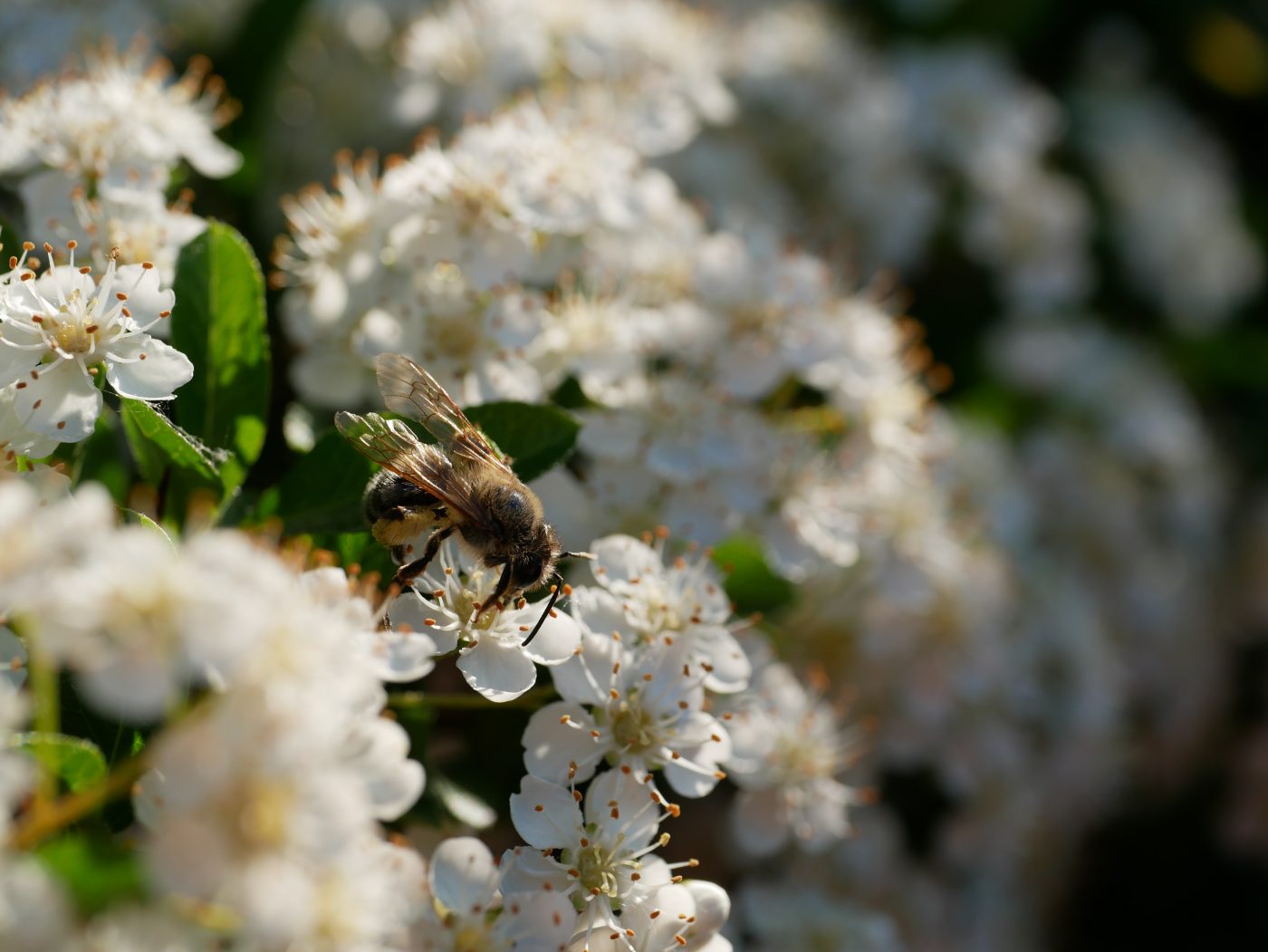
The best location
There are two main criteria when choosing the right location for placing beehives: the amount of food sources around it and the evaluation of local risk factors. When assessing the available food you should consider a radius of about 3 km – that is how far bees fly to collect pollen and nectar. Fruit trees or blooming chestnuts and linden are also good food sources although they are often disregarded. Rapeseed fields, parks, private gardens, green rooftops and blooming hedges can be very valuable, too. A diverse variety with different flowering times is optimal. The food availability also depends on the number of bees around – if there are too many bees in a small area they will not find as much food as they need and the pressure on wild living pollinators will increase inadequately. Beekeepers can then either move their colonies to other areas or decide to feed the bees with syrup. Local risk factors particularly involve intensive agriculture that uses a high amount of bee-toxic pesticides. For that reason, many beekeepers have decided to start apicultures in the city where the bees can find more healthy food. However, this trend does not solve the problem that many agricultural products rely on pollination. Flowers4Bees therefore supports horticulture that is safe for bees.
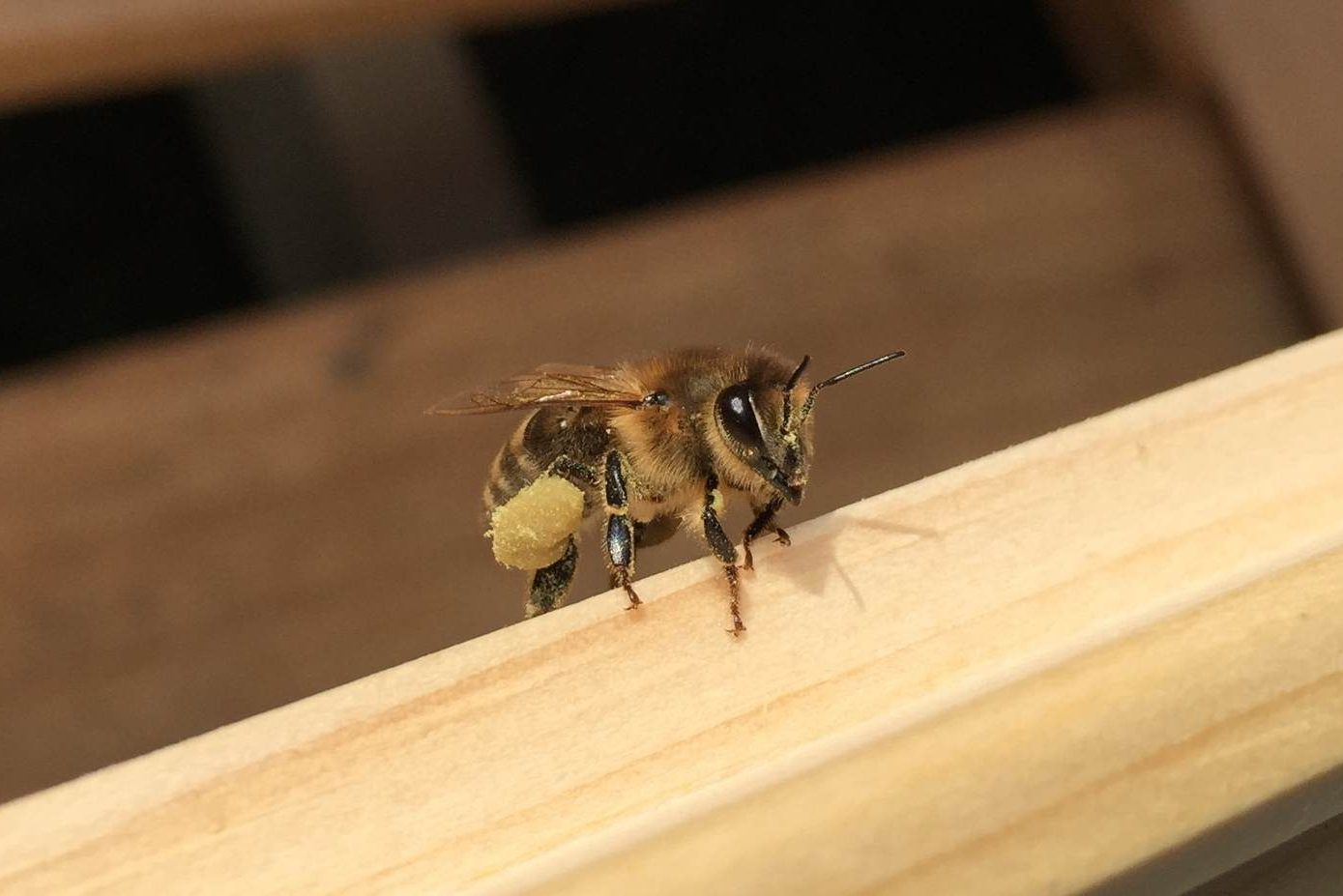
Certification
If you plan to have your apiculture certified as organic or at least want to keep all your options open there are some things that you should consider right from the start. An organic apiculture works solely with natural materials, i.e. you should decide in favor of wooden instead of polystyrene hives right away. Use biological oils such as linseed oil to protect the wood from moisture and dirt. Use natural wax crayons to color-code your hives and pesticide-free wax foundations. Furthermore, manipulations of the queen bee (e.g. cutting the wings) are taboo, just as using medication against the Varroa mite except for lactic, formic and oxalic acid. The beehives should be placed in areas of extensive agriculture. Moreover, you need to introduce a closed wax circle or buy organic wax. If you need to buy a new queen bee or a whole colony, these need to be certified as well.
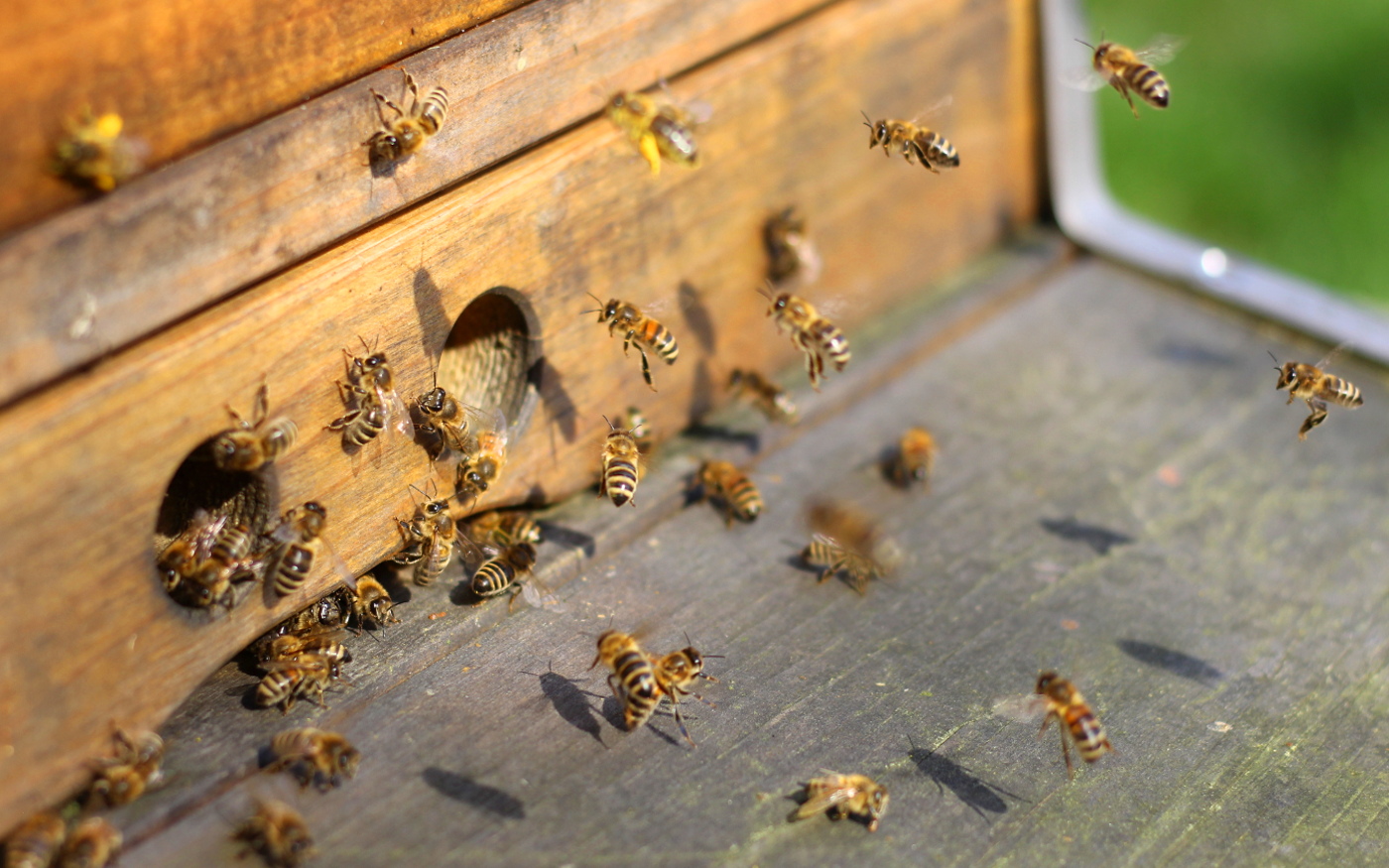
The ABC of bees
Before becoming a beekeeper, we would absolutely recommend to attend an apiculture seminar. These are often offered by local beekeeper associations. In the class, you will receive information about the way of life, health maintenance and reproduction of bee colonies. Additionally, practitioners will give you valuable hints about honey production, necessary operations and reactions of a beekeeper. That way, you can benefit from the experiences of others and consult these experts after you have started your own apiculture. Generally, it is possible to start beekeeping already during the class. If you haven’t made up your mind yet you can often just accompany another beekeeper throughout one year. Afterwards you can rely on first practical experiences and the help of an experienced beekeeper to make your decision about starting your own beekeeping career.
We would also highly recommend for you to get informed on the legal aspects of beekeeping. Make sure that you are aware of the rights and responsibilities of a beekeeper in your country/state by searching for the local beekeeping rules and regulations.